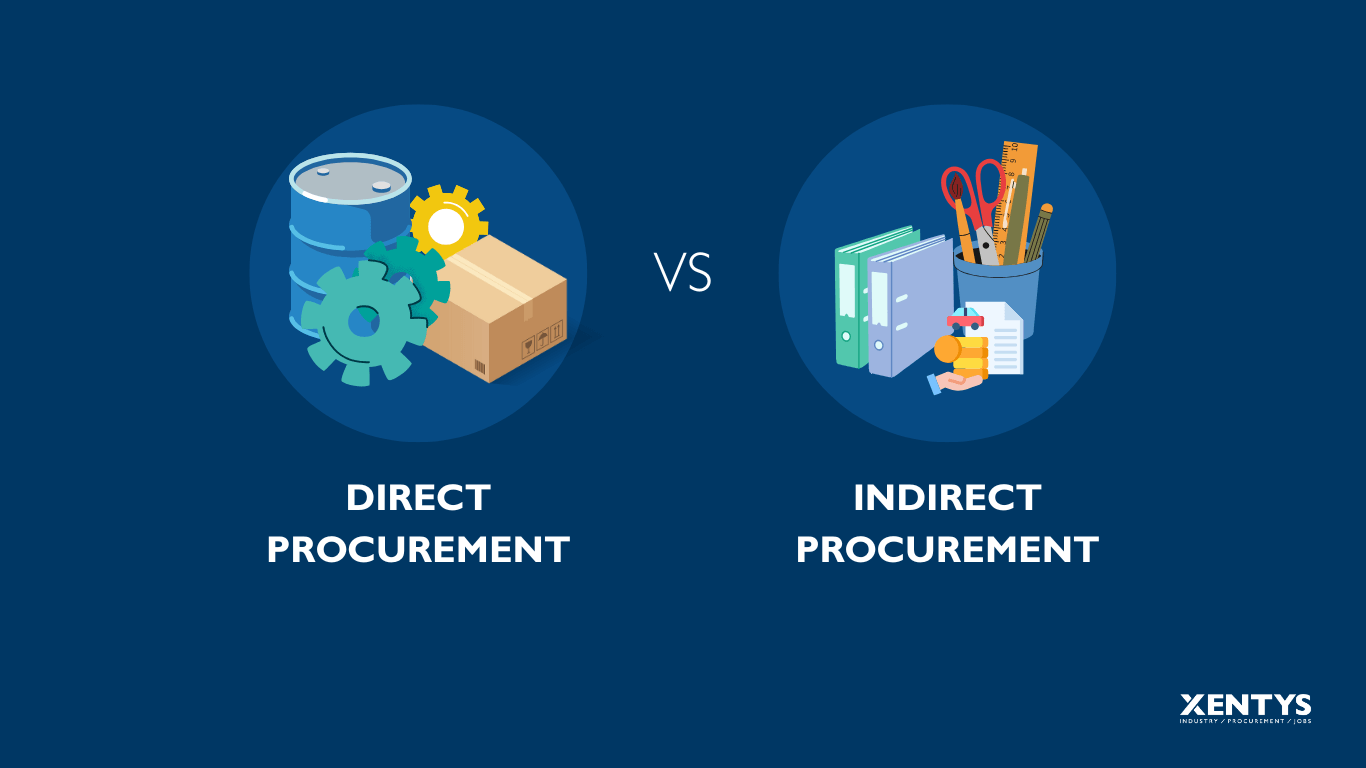Direct Procurement
Direct procurement refers to the process of purchasing goods or services that directly contribute to a company’s final product. This is distinguished from indirect procurement, which involves purchases that are supportive of business operations but are not directly incorporated into the final product. In the context of a manufacturing company, such as Xentys, direct procurement typically includes raw materials, components and parts needed to produce the final product.
This process is a crucial aspect of supply chain management and has a direct impact on product quality, production costs and even customer satisfaction.
Efficient direct sourcing requires accurate planning and close cooperation with suppliers to ensure optimal conditions.
This involves not only the procurement process itself, but also maintaining relationships with suppliers, managing contracts and constantly seeking improvements in the procurement strategy.
An effective direct sourcing strategy can lead to significant cost savings and a stronger competitive position for the company.
However, it requires a deep understanding of both the company’s internal needs and market dynamics.
This enables companies like xentys to realise their international growth ambitions by optimising their procurement processes and ensuring streamlined and efficient production.
By working closely with suppliers and using cross-functional teams, organisations can respond faster to customer needs, drive innovation and achieve sustainable results.
Agile Procurement thus not only supports an efficient procurement operating model but also contributes to the overall agility and competitiveness of the organisation.
In-depth Analysis of Direct Procurement
Direct sourcing is more than just procuring raw materials or product components; it is a strategic process that has a direct impact on business operations and ultimately on customer satisfaction. For companies like xentys, operating in a dynamic and competitive market, it is essential to have an advanced procurement policy.
Strategic Sourcing: Core of Direct Sourcing
Strategic sourcing is crucial in direct procurement. This means that companies look not only at cost, but also at the value that suppliers can offer in terms of quality, innovation and security of supply. For Xentys, this means choosing suppliers who are not only cost-effective, but who can also contribute to their international growth ambitions and are reliable in delivering high-quality products.
Optimization of Supplier Relationships
Another key factor is building and maintaining strong relationships with suppliers. This goes beyond standard contracts; it requires ongoing dialogue and collaboration to ensure an efficient supply chain. For example, Xentys must regularly evaluate market conditions and adjust its relationship with suppliers to meet changing business needs.
Challenges in Direct Procurement
Direct sourcing brings unique challenges. One is managing the risk of price volatility in the market. As mentioned earlier, using contract procurement can help manage price volatility, but this can also lead to missed opportunities when market prices fall. In addition, dependence on specific suppliers can be a risk. Xentys therefore needs to strike a balance between contract security and market flexibility.
Technology in Direct Procurement
The role of technology in direct procurement cannot be underestimated. Advanced procurement systems enable companies to streamline their procurement processes, perform better data analysis and make faster decisions. For xentys, this can mean having access to real-time market data, which helps them make informed purchasing decisions.
Sustainability and Ethics
Sustainability and ethics are becoming increasingly important in direct procurement. Consumers and companies are increasingly aware of the environmental and social impact of their purchases. For Xentys, it is important to choose suppliers that not only meet their commercial needs but also their values in terms of sustainability and ethical practices.
In summary, xentys’ direct sourcing strategy should be a balanced approach that considers cost, quality, supplier relationships, market dynamics, technology, and sustainability. By carefully considering these factors and integrating them into their procurement strategy, xentys can strengthen its position in the market and fulfil its growth ambitions.
Purchasing vacancies
Frequently Asked Questions about Direct Procurement
In this section, we address some frequently asked questions about direct procurement, providing insight into the nuances and important considerations of this crucial business process.
What is the Difference between Direct and Indirect Purchasing?
Direct procurement involves the purchase of goods or services that directly contribute to a company’s final product, such as raw materials and product components. Indirect procurement, on the other hand, involves the purchase of goods and services needed for general business operations, such as office materials, maintenance services or IT systems.
How Does Direct Procurement Contribute to a Company's Competitive Position?
Effective direct sourcing allows companies to cut costs, improve the quality of their products and increase the efficiency of their production processes. This leads to better competitiveness, as the company is able to offer high-quality products at competitive prices.
What Role Do Supplier Relationships Play in Direct Procurement?
Supplier relationships are crucial in direct sourcing. A strong relationship with suppliers can lead to better prices, quality improvements, and innovations. Companies should strive for a partnership with suppliers where there is mutual understanding and cooperation.
How Does Technology Influence Direct Procurement?
Technology plays a key role in optimising direct procurement processes. Inventory management systems, electronic purchasing systems, and data analytics tools help companies efficiently manage their procurement processes, better predict supply and demand, and make data-driven purchasing decisions.
What is the Importance of Sustainability in Direct Procurement?
Sustainability is increasingly important in direct procurement. Companies are increasingly being judged on their environmental and social impact. By choosing sustainable procurement practices, companies can reduce their environmental footprint and contribute positively to social issues.
How Does One Handle Risk in Direct Procurement?
Risk management is an essential part of direct procurement. Companies should identify potential risks, such as price fluctuations and supplier risks, and develop strategies to manage these risks. This may include diversifying suppliers, entering into long-term contracts or using hedging strategies.
Can Direct Procurement contribute to Innovation within a Company?
Yes, direct sourcing can be an important source of innovation. By working closely with suppliers, companies can gain access to new technologies, materials and production methods that can lead to product innovation.
How Does a Company Manage Quality in Direct Procurement?
Quality management in direct procurement involves carefully selecting suppliers, establishing clear quality criteria and standards, and carrying out regular audits and inspections. This ensures that the goods and services purchased meet the quality requirements set.

FREE WHITE PAPER
Reduce Total Cost of Ownership (TCO) with the Kraljic Matrix
Procurement knowledge
Find our free white papers and knowledge on technical procurement. Unlock insights into procurement with xentys. Discover whitepapers and expertise on technical procurement to enhance your career or business strategies.











